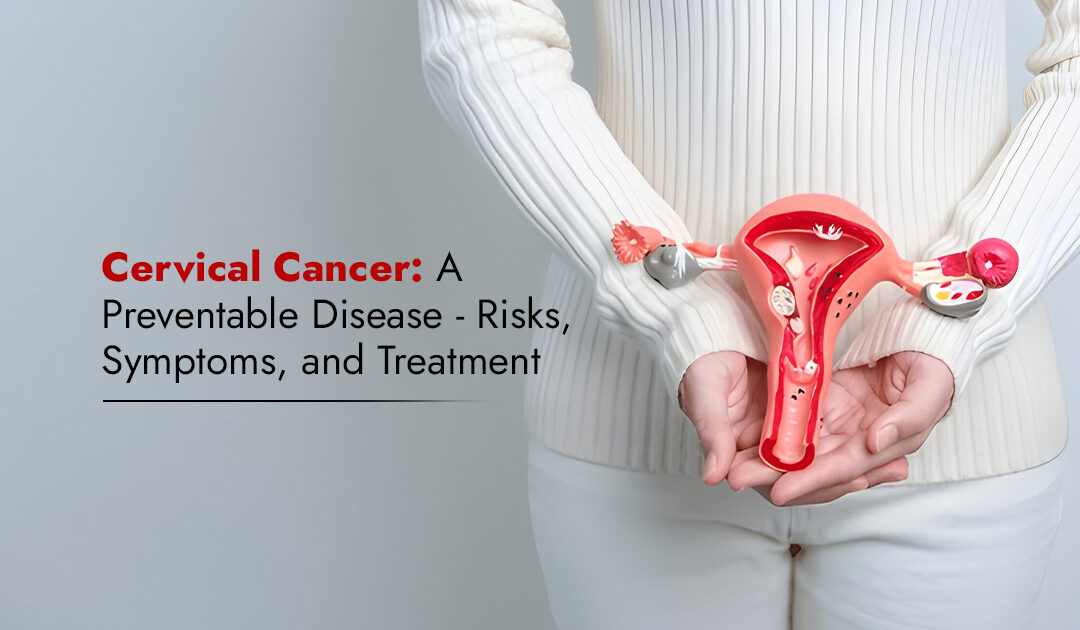Cervical cancer is a type of cancer that begins in the cervix, the lower, narrow part of the uterus that connects to the vagina. It is primarily caused by the human papillomavirus (HPV), a common sexually transmitted infection. While cervical cancer may not be as prevalent as breast or lung cancer, it is still a significant health concern that should not be overlooked. The good news is that cervical cancer is highly preventable with the right screenings and vaccination.
What is Cervical Cancer?
Cervical cancer develops slowly, often over several years. It begins with abnormal cells on the cervix, which can grow into precancerous lesions. If left undetected and untreated, these lesions may evolve into cervical cancer. Regular screenings like Pap tests can detect abnormal cells early, preventing their progression to cancer.
Risk Factors for Cervical Cancer
Several factors can increase the risk of developing cervical cancer, including:
- HPV Infection: HPV is the primary cause of cervical cancer. It is a sexually transmitted virus, and certain strains are more likely to lead to cancer.
- Smoking: Smoking weakens the immune system, making it harder for the body to fight off HPV infections, thereby increasing the risk of cervical cancer.
- Immunosuppressed Conditions: People with compromised immune systems, such as those with HIV/AIDS, are more vulnerable to developing cervical cancer.
- Early Sexual Activity: Engaging in sexual activity at a younger age increases the likelihood of HPV infection.
Early Signs of Cervical Cancer
In the early stages, cervical cancer may not present any symptoms. However, as the cancer progresses, the following signs and symptoms may appear:
- Abnormal Vaginal Bleeding: This may occur between menstrual cycles, after sexual intercourse, or even after menopause.
- Pelvic Pain or Pressure: Persistent pain or discomfort in the pelvic area can be a warning sign.
- Unusual Vaginal Discharge: Watery, bloody, or foul-smelling discharge is a potential indicator of cervical cancer.
- Pain During Intercourse: Discomfort or pain during sexual activity can also be a symptom of cervical cancer.
Prevention of Cervical Cancer
The best way to prevent cervical cancer is through vaccination and regular screenings. Here are two primary methods of prevention:
- HPV Vaccine: The HPV vaccine provides protection against the virus that causes cervical cancer. It is recommended for girls and young women between the ages of 9 and 26. Typically, two or three doses of the vaccine are administered to offer full protection.
- Routine Cervical Screening: Regular Pap tests and HPV tests can detect abnormal cells on the cervix before they turn into cancer. Early detection is key, especially for women at high risk. Regular screening can significantly reduce the chances of cervical cancer development.
Treatment Options for Cervical Cancer
The treatment of cervical cancer depends on the stage at which it is diagnosed. Here are the common treatments:
- Surgery: In early stages, surgery may be performed to remove the cervix, uterus, and lymph nodes in the pelvic area.
- Radiation Therapy: High-energy rays are used to kill cancerous cells.
- Chemotherapy: Drugs are used to destroy cancer cells. Chemotherapy is often used in combination with radiation therapy.
- Targeted Therapy: This treatment uses drugs that specifically target molecules involved in cancer cell growth and survival.
Early Detection is Key
Cervical cancer is highly treatable if caught early. Prevention through immunization and regular screenings is the most effective strategy to reduce the risk. If you are concerned about your risk of cervical cancer, or if you are due for a screening, it’s important to discuss your options with a healthcare provider.
Dr. Seema, an expert gynecologist, is available to help you understand the risks, prevention methods, and treatment options for cervical cancer. Don’t hesitate to schedule a consultation to protect your health.
By staying informed and taking preventive measures, you can significantly reduce your chances of developing cervical cancer. Early detection and proper treatment are crucial in managing and curing this preventable disease.

